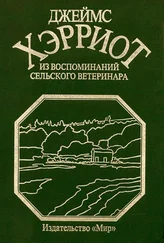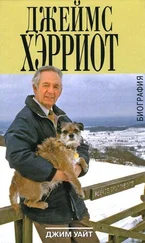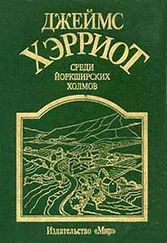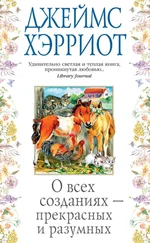Джеймс Хэрриот - All Creatures Great and Small
Здесь есть возможность читать онлайн «Джеймс Хэрриот - All Creatures Great and Small» весь текст электронной книги совершенно бесплатно (целиком полную версию без сокращений). В некоторых случаях можно слушать аудио, скачать через торрент в формате fb2 и присутствует краткое содержание. Год выпуска: 2011, ISBN: 2011, Издательство: Open Road Media, Жанр: Домашние животные, на английском языке. Описание произведения, (предисловие) а так же отзывы посетителей доступны на портале библиотеки ЛибКат.
- Название:All Creatures Great and Small
- Автор:
- Издательство:Open Road Media
- Жанр:
- Год:2011
- ISBN:9781453234488
- Рейтинг книги:4.33 / 5. Голосов: 3
-
Избранное:Добавить в избранное
- Отзывы:
-
Ваша оценка:
- 80
- 1
- 2
- 3
- 4
- 5
All Creatures Great and Small: краткое содержание, описание и аннотация
Предлагаем к чтению аннотацию, описание, краткое содержание или предисловие (зависит от того, что написал сам автор книги «All Creatures Great and Small»). Если вы не нашли необходимую информацию о книге — напишите в комментариях, мы постараемся отыскать её.
All Creatures Great and Small — читать онлайн бесплатно полную книгу (весь текст) целиком
Ниже представлен текст книги, разбитый по страницам. Система сохранения места последней прочитанной страницы, позволяет с удобством читать онлайн бесплатно книгу «All Creatures Great and Small», без необходимости каждый раз заново искать на чём Вы остановились. Поставьте закладку, и сможете в любой момент перейти на страницу, на которой закончили чтение.
Интервал:
Закладка:
We finished up with the smallest calves and they were just about the most difficult to handle. The shaggy little creatures kicked, bucked, sprang into the air, ran through our legs and even hurtled straight up the walls. Often the brothers had to throw themselves on top of them and bear them to the ground before I could inject them and when the calves felt the needle they stuck out their tongues and bawled deafeningly; outside, the anxious mothers bellowed back in chorus.
It was midday when I reeled out of the buildings. I seemed to have been a month in there, in the suffocating heat, the continuous din, the fusillade of muck.
Frank and George produced a bucket of water and a scrubbing brush and gave me a rough clean-up before I left. A mile from the farm I drove off the unfenced road, got out of the car and dropped down on the cool fell-side. Throwing wide my arms I wriggled my shoulders and my sweat-soaked shirt into the tough grass and let the sweet breeze play over me. With the sun on my face I looked through half closed eyes at the hazy-blue sky.
My ribs ached and I could feel the bruises of a dozen kicks on my legs. I knew I didn’t smell so good either. I closed my eyes and grinned at the ridiculous thought that I had been conducting a diagnostic investigation for tuberculosis back there. A strange way to carry out a scientific procedure; a strange way, in fact, to earn a living.
But then I might have been in an office with the windows tight shut against the petrol fumes and the traffic noise, the desk light shining on the columns of figures, my bowler hat hanging on the wall.
Lazily I opened my eyes again and watched a cloud shadow riding over the face of the green hill across the valley. No, no … I wasn’t complaining.
EIGHT
I HARDLY NOTICED THE passage of the weeks as I rattled along the moorland roads on my daily rounds; but the district was beginning to take shape, the people to emerge as separate personalities. Most days I had a puncture. The tyres were through to the canvas on all wheels; it surprised me that they took me anywhere at all.
One of the few refinements on the car was a rusty “sunshine roof.” It grated dismally when I slid it back, but most of the time I kept it open and the windows too, and I drove in my shirt sleeves with the delicious air swirling about me. On wet days it didn’t help much to close the roof because the rain dripped through the joints and formed pools on my lap and the passenger seat.
I developed great skill in zig-zagging round puddles. To drive through was a mistake as the muddy water fountained up through the gaps in the floorboards.
But it was a fine summer and long days in the open gave me a tan which rivalled the farmers’. Even mending a puncture was no penance on the high, unfenced roads with the wheeling curlews for company and the wind bringing the scents of flowers and trees up from the valleys. And I could find other excuses to get out and sit on the crisp grass and look out over the airy roof of Yorkshire. It was like taking time out of life. Time to get things into perspective and assess my progress. Everything was so different that it confused me. This countryside after years of city streets, the sense of release from exams and study, the job with its daily challenge. And then there was my boss.
Siegfried Farnon charged round the practice with fierce energy from dawn till dark and I often wondered what drove him on. It wasn’t money because he treated it with scant respect. When the bills were paid, the cash went into the pint pot on the mantelpiece and he grabbed handfuls when he wanted it. I never saw him take out a wallet, but his pockets bulged with loose silver and balled-up notes. When he pulled out a thermometer they flew around him in a cloud.
After a week or two of headlong rush he would disappear; maybe for the evening, maybe overnight and often without saying where he was going. Mrs. Hall would serve a meal for two, but when she saw I was eating alone she would remove the food without comment.
He dashed off the list of calls each morning with such speed that I was quite often sent hurrying off to the wrong farm or to do the wrong thing. When I told him later of my embarrassment he would laugh heartily.
There was one time when he got involved himself. I had just taken a call from a Mr. Heaton of Bronsett about doing a P.M. on a dead sheep.
“I’d like you to come with me, James,” Siegfried said. “Things are quiet this morning and I believe they teach you blokes a pretty hot post-mortem procedure. I want to see you in action.”
We drove into the village of Bronsett and Siegfried swung the car left into a gated lane.
“Where are you going?” I said. “Heaton’s is at the other end of the village.”
“But you said Seaton’s.”
“No, I assure you …”
“Look, James, I was right by you when you were talking to the man. I distinctly heard you say the name.”
I opened my mouth to argue further but the car was hurtling down the lane and Siegfried’s jaw was jutting. I decided to let him find out for himself.
We arrived outside the farmhouse with a screaming of brakes. Siegfried had left his seat and was rummaging in the boot before the car had stopped shuddering. “Hell!” he shouted. “No post-mortem knife. Never mind, I’ll borrow something from the house.” He slammed down the lid and bustled over to the door.
The farmer’s wife answered and Siegfried beamed on her. “Good morning to you, Mrs. Seaton, have you a carving knife?”
The good lady raised her eyebrows. “What was that you said?”
“A carving knife, Mrs. Seaton, a carving knife, and a good sharp one, please.”
“You want a carving knife?”
“Yes, that’s right, a carving knife!” Siegfried cried, his scanty store of patience beginning to run out. “And I wonder if you’d mind hurrying. I haven’t much time.”
The bewildered woman withdrew to the kitchen and I could hear whispering and muttering. Children’s heads peeped out at intervals to get a quick look at Siegfried stamping irritably on the step. After some delay, one of the daughters advanced timidly, holding out a long, dangerous-looking knife.
Siegfried snatched it from her hand and ran his thumb up and down the edge. “This is no damn good!” he shouted in exasperation. “Don’t you understand I want something really sharp? Fetch me a steel.”
The girl fled back into the kitchen and there was a low rumble of voices. It was some minutes before another young girl was pushed round the door. She inched her way up to Siegfried, gave him the steel at arm’s length and dashed back to safety.
Siegfried prided himself on his skill at sharpening a knife. It was something he enjoyed doing. As he stropped the knife on the steel, he warmed to his work and finally burst into song. There was no sound from the kitchen, only the ring of steel on steel backed by the tuneless singing; there were silent intervals when he carefully tested the edge, then the noise would start again.
When he had completed the job to his satisfaction he peered inside the door. “Where is your husband?” he called.
There was no reply so he strode into the kitchen, waving the gleaming blade in front of him. I followed him and saw Mrs. Seaton and her daughters cowering in the far corner, staring at Siegfried with large, frightened eyes.
He made a sweeping gesture at them with the knife. “Well, come on, I can get started now!”
“Started what?” the mother whispered, holding her family close to her.
“I want to P.M. this sheep. You have a dead sheep, haven’t you?”
Explanations and apologies followed.
Later, Siegfried remonstrated gravely with me for sending him to the wrong farm.
“You’ll have to be a bit more careful in future, James,” he said seriously. “Creates a very bad impression, that sort of thing.”
Читать дальшеИнтервал:
Закладка:
Похожие книги на «All Creatures Great and Small»
Представляем Вашему вниманию похожие книги на «All Creatures Great and Small» списком для выбора. Мы отобрали схожую по названию и смыслу литературу в надежде предоставить читателям больше вариантов отыскать новые, интересные, ещё непрочитанные произведения.
Обсуждение, отзывы о книге «All Creatures Great and Small» и просто собственные мнения читателей. Оставьте ваши комментарии, напишите, что Вы думаете о произведении, его смысле или главных героях. Укажите что конкретно понравилось, а что нет, и почему Вы так считаете.




![Джеймс Хэрриот - О всех созданиях – больших и малых [litres]](/books/391169/dzhejms-herriot-o-vseh-sozdaniyah-bolshih-i-malyh-thumb.webp)







